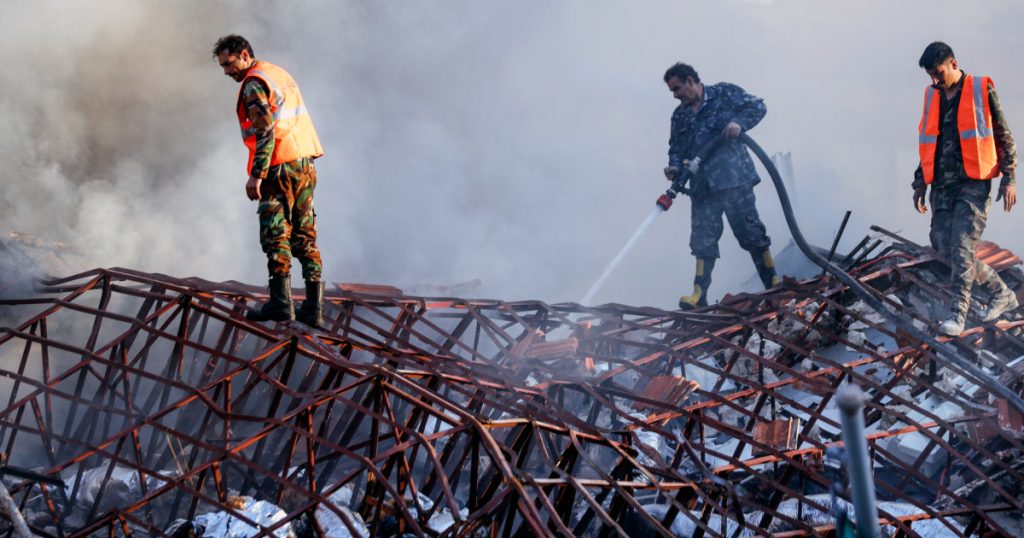Iran launched a retaliatory attack against Israel that sparked fears of a regional conflict drawing in U.S. military forces. The attack involved more than 100 Iranian drones heading towards Israel, with the possibility of cruise missiles and ballistic missiles being involved. The U.S. and Israel are working together to defend against the attack and are prepared for any escalation. President Biden is being updated on the situation and plans to meet with his national security team. The U.S. has signaled its support for Israel and is ready to assist in defending the country with warships in the region.
Tensions in the region have been high since a suspected Israeli strike in Syria killed two Iranian generals and five officers. Iran vowed revenge for the attack on its consulate, leading to the retaliatory strike on Israel. The attack could potentially trigger an uncontrollable cycle of violence, with analysts questioning whether Iran’s intentions will play out as planned. Iran’s supreme leader has vowed to punish Israel, fueling the growing tensions between the two countries. The U.S. is closely monitoring the situation and is prepared to help defend Israel if necessary.
The blast at the Iranian consulate in Syria killed two of Iran’s top commanders, including Brig. Gen. Mohammad Reza Zahedi, a key figure in coordinating the Axis of Resistance. This anti-Israel network includes groups like Hamas, Hezbollah, and the Houthis, who have all conducted attacks against Israel or its allies. The IRGC, Iran’s powerful military organization, has helped Tehran wage a shadow war with Israel across the Middle East. Israel has targeted Iranian military and nuclear sites in response, fearing Iran’s growing military presence in Syria poses a threat.
Israel, which has nuclear weapons, advanced air defenses, and a state-of-the-art air force, enjoys a military advantage over Iran. However, Iran has built up a formidable ballistic missile and drone arsenal, along with its various proxies that can target Israeli or U.S. interests across the region. The escalation of tensions between Iran and Israel has raised concerns about the potential for a full-blown conflict. The U.S. has been working to de-escalate the situation and prevent a major war from breaking out, but the risk of unintended consequences remains high.
The recent attack by Iran on Israel marks the first time that Iran has directly targeted the Jewish state, rather than using armed proxies in neighboring countries. Israeli officials are on high alert and working to intercept the incoming drones and potential missiles. The U.S. and Israel are coordinating their response to the attack, with U.S. assets in the region also being prepared for any potential targeting. President Biden is closely monitoring the situation and is ready to support Israel in defending against further attacks.
The attack on Israel comes after a series of escalating incidents between the two countries, including the killing of top Iranian commanders in Syria. Iran’s retaliation against Israel could lead to a wider conflict involving more countries in the region. The situation remains fluid, with the risk of unintended consequences and further escalation always present. The U.S. is committed to supporting Israel’s security against threats from Iran and its proxies, but is also working to prevent a major war from breaking out. The coming hours and days will be crucial in determining the outcome of this latest flare-up in tensions between Iran and Israel.


